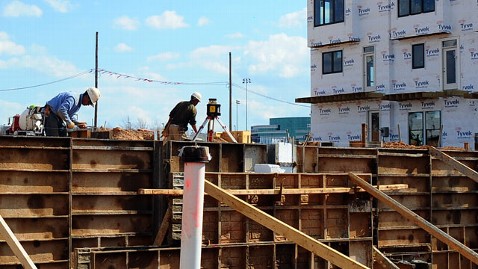Sequester at Home: Uncertainty in DC Suburb Means Higher Taxes to Come

(Image Credit: Jonathan Newton/The Washington Post/Getty Images)
Residents of Virginia's most populous county should expect to see a bump in their property tax bill this year, thanks to economic uncertainty fostered by - you guessed it - Washington and the sequester, a county official said Thursday.
Fairfax County, a D.C. suburb ranked one of the top three richest counties in the country, depends on government contracts for much of its commercial revenue. As agencies are tightening their belts in some places and throwing their hands up on others trying to figure out how the $85 billion budget cuts will affect them, businesses lack the stability to expand, according to Braddock District Supervisor John Cook of Fairfax County.
County officials have named sequestration one of the factors shaping their plans for the coming year.
"The uncertainty about sequestration puts Fairfax in a particularly vulnerable economic situation," reads the county's most recent budget proposal for FY 2014. "The good news is that Fairfax County's General Fund only receives about 1 percent of its budget from the federal government and the County's total revenue stream is fairly resilient. The bad news is that residents and businesses within the County will also be impacted which in turn will impact growth and substantial recovery in the real estate market, consumer consumption and business expansion."
READ MORE: New Hampshire Businesses Look to Exports to Make Up for Budget Cuts
Cook, a Republican coming up on the four-year anniversary of his swearing-in in Fairfax, blamed the need for the tax increase on the federal government's lack of consensus on sequestration and the practice of passing continuing resolutions rather than yearlong budgets.
"The worst thing for a business is to not know what's coming, because a business will adjust to reality," Cook told ABC News Thursday. "If they knew what was coming - even if it wasn't good - they'd adjust to it and eventually we'd have growth, but we won't have growth until there's an answer."
READ MORE: Sequester to Bring Harm Beyond Staffing Cuts at Local, National Level
Yesterday the House of Representatives passed a continuing resolution to fund the government for the next six months. Cook insisted short-term stop-gap measures like these make planning his county's own budget more difficult.
"We have to set aside reserves, and we have to hold off on doing new things, because we don't know what's coming down the pipes," Cook said.
The current budget proposal institutes an extra 2 percent in property tax - going from $1.075 for every $100 of assessed property value to $1.095. The county estimates that will mean an extra $94 added to the average taxpayer's bill.
Fairfax County had the 37 th highest property taxes in the nation between 2005 and 2009, according to the Tax Foundation, with the median home paying about $4,371 in taxes on land. Two other Virginia counties outranked Fairfax, with most of the other counties located in New York, New Jersey or Illinois.
As a state, Virginia ranks 14 th in the nation for highest property taxes; the average locality took $1,427 per capita in property taxes in 2009. Americans paid almost $475 billion in property taxes between September 2011 and September 2012.
READ MORE: The Most Convoluted Sequestration Controversy Known to Man?
The bottom line for Cook was that loss of revenue does not just hurt residents in their wallet. As the board of supervisors finalizes the next draft of the budget between now and April, they're considering flattening education funding.
The county executive recommended raising funding to schools by two percent - a three percent cut from what they requested. But Cook said that number could drop further still.
The Center on Budget and Policy Priorities estimates local education agencies in Virginia are already losing more than $11.6 million dollars in grants, plus another $14.395 million in special education grants to the state, almost half a million in pre-school grants and $999,000 in federal work study.
READ MORE: Sequester Snapshot - Student Loans
"What's the real world effect of this uncertainty in the economic environment? It's that our schools are not getting the money that they're looking for," Cook said.
Virginia Gov. Bob McDonnell signed an executive order March 1 with $45 million targeted to help localities.
"We are doing all we can on the state level to weather this difficult period," the Republican governor said in a statement emailed to ABC News. "Now, we need leadership in Washington so all states and all Americans can have certainty about the years ahead, and to get our nation's fiscal house in order."